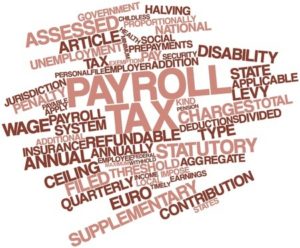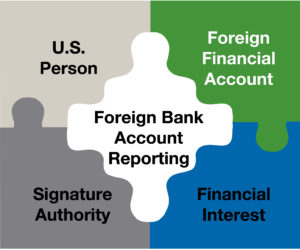The Trust Fund Penalty for Delinquent IRS Trust Fund Taxes
 If you owe back payroll taxes, you should hire a capable Tax Attorney, who is experienced and familiar with the rules pertaining to the application of the Trust Fund Penalty. The IRS considers unpaid Trust Fund Taxes a serious matter and has made collection of these taxes a priority.
If you owe back payroll taxes, you should hire a capable Tax Attorney, who is experienced and familiar with the rules pertaining to the application of the Trust Fund Penalty. The IRS considers unpaid Trust Fund Taxes a serious matter and has made collection of these taxes a priority.
This is based upon two factors. First, as of September 2015, $59 Billion in payroll taxes remained outstanding.Second, approximately 69% of all taxes collected by the IRS are income taxes that are withheld from employers. The heightened scrutiny is evidenced by Assistant Attorney General, Caroline D. Ciraolo’s, statement made during a key note address at the American Bar Association’s 27th annual Philadelphia Tax Conference on November 2, 2016.
“Among our top priorities is civil and criminal employment tax enforcement. Employment tax violations represent $91 billion dollars of our country’s $458 billion dollar gross tax gap, and as of June 30, 2016 more than $59 billion reported on quarterly employment tax returns remained unpaid.”https://www.justice.gov/opa/speech/principal-deputy-assistant-attorney-general-caroline-d-ciraolo-delivers-keynote-address
In addition, recent prosecutions and convictions make clear that “the willful failure to comply with employment tax obligations is a crime – plain and simple.” https://www.justice.gov/opa/pr/nevada-business-owner-and-bookkeeper-sentenced-employment-tax-crimes.
The following is representative sample of criminal prosecutions and convictions for unpaid employment taxes.
- On October 26, 2016, Michigan owners of sixteen adult foster care homes were indicted for failure to pay employment taxes. From September 2010 through 2014, the owners withheld payroll taxes from their employee paycheck, but failed to file employment tax returns and also failed to pay over the trust fund taxes they collected.https://www.justice.gov/opa/pr/michigan-owners-sixteen-adult-foster-care-homes-indicted-failure-pay-employment-taxes
- On October 25, 2016, Kyle Archie was sentenced to 10 months in prison for failure to pay over employment taxes for the tax years 2003-2009 related several entities including Reno Rock, Inc., GKPA Inc. and D Rockeries, Inc. . https://www.justice.gov/opa/pr/nevada-business-owner-and-bookkeeper-sentenced-employment-tax-crimes
- On October 18, 2016 two West Virginian business owners pled guilty for failing to pay employment taxes. The defendants operated a construction business from July 2007 through 2010. The defendants also failed to pay over $490,000 in employment taxes for a prior business. https://www.justice.gov/opa/pr/west-virginia-business-owners-plead-guilty-failing-pay-employment-taxes
- On September 15, 2016 a North Carolina man pled guilty to failing to pay employment taxes. The defendant operated an audio business in Burlington, North Carolina. From 2008-2011 the defendant failed to pay over employment taxes withheld from his employees. Instead, the defendant used the trust fund taxes https://www.justice.gov/opa/pr/north-carolina-man-pleads-guilty-failing-pay-employment-taxes
In April of 2015 the IRS launched the Federal Tax Deposit X Coded Pilot Program.
The Program was designed to test the impact of alternate Alert treatments such as Soft Notices and Revenue Officer visits and identify which taxpayers benefit most from the alerts. In addition, In addition, the IRS plans to roll out Electronic Federal Tax Payment System (“EFTPS”) in 2017. According to the IRS, the EFTPS will modify the Federal Tax Deposit platform by creating a near real time system to identify variances in Federal Tax Deposits. These initiatives are designed to improve collection case selection, assignment to agents, and enable the IRS to make data driven decisions regarding taxpayer contacts.
The takeaway here is that failure to pay Trust Fund Taxes can result in substantial penalties as well as imprisonment. If you have unpaid payroll taxes you should immediately contact a Tax Attorney.
© Anthony N. Verni, Attorney at Law, Certified Public Accountant
11/10/2016

 The definition of a Knucklehead is“someone considered to be of questionable intelligence.”
The definition of a Knucklehead is“someone considered to be of questionable intelligence.” You’ve discovered you have to file the Foreign Bank Account Report but are having trouble finding an FBAR attorney. As you search across the web, it may seem as though there are attorneys for any number of issues, except this specific one.
You’ve discovered you have to file the Foreign Bank Account Report but are having trouble finding an FBAR attorney. As you search across the web, it may seem as though there are attorneys for any number of issues, except this specific one.  Failure to file
Failure to file 
